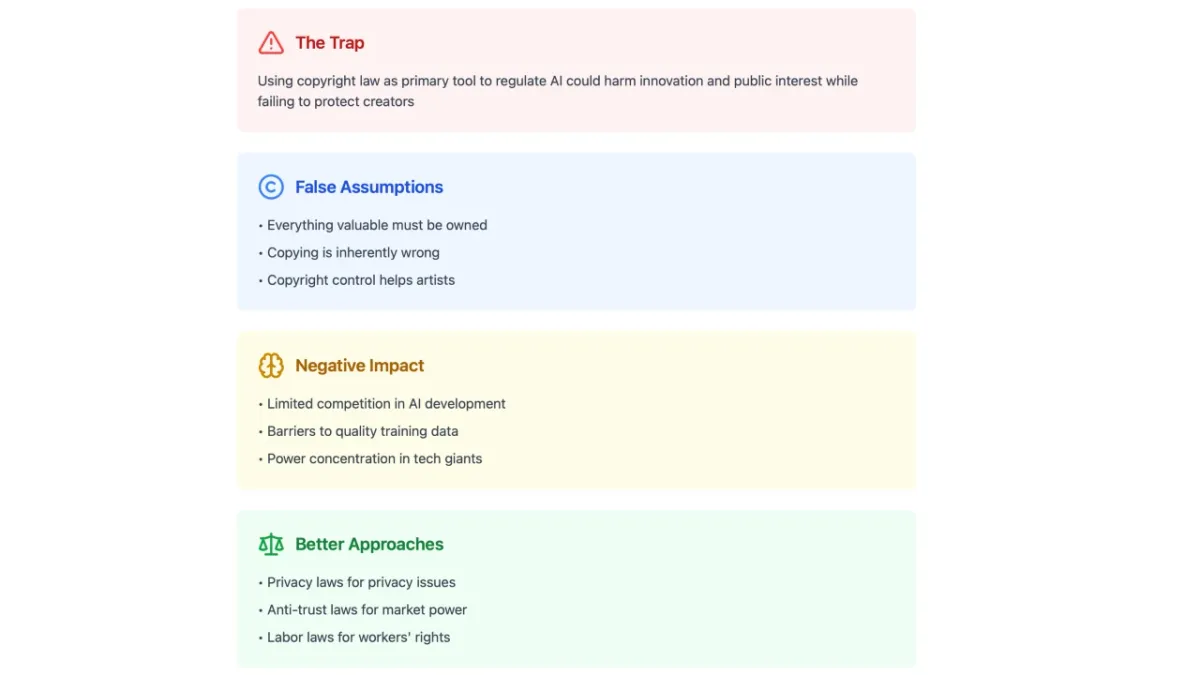
A forthcoming paper in the Chicago-Kent Law Review cautions against using copyright law as the primary tool to regulate artificial intelligence systems. According to Professor Carys J. Craig from Osgoode Hall Law School, strengthening copyright restrictions on AI training data could have unintended negative consequences.
The paper, released on August 28, 2024, examines the growing calls to expand copyright control over materials used to train AI models. According to Craig, while concerns about AI's impact on creators are legitimate, copyright law is "neither apposite nor equipped to govern the development of AI."
Craig identifies three problematic assumptions driving the push for stronger copyright controls:
The belief that anything of value must be privately owned. Craig argues this leads to unnecessary expansion of intellectual property rights into areas that should remain in the public domain.
The notion that copying is inherently wrong. The paper notes that in the digital age, incidental copying is ubiquitous and should not automatically trigger copyright restrictions.
The assumption that copyright control helps struggling artists. Historical evidence shows copyright expansions often benefit large corporations rather than individual creators, Craig states.
The research warns that requiring copyright permissions for AI training could limit competition by creating "cost-prohibitive barriers to quality data" while ensuring "only the most powerful players have the means to build the best AI tools."
The paper suggests alternative approaches focused on specific harms: "Privacy harms may be addressed by improved privacy laws; gross income inequalities may be better addressed by targeted tax laws; corporate power and disproportionate profit may be better addressed by anti-trust and competition laws."
According to legal experts cited in the study, existing copyright law already provides remedies when AI outputs substantially copy specific protected works. The paper argues additional copyright restrictions are unnecessary and could hamper beneficial AI development across sectors like healthcare and scientific research.
The research comes as courts and policymakers globally grapple with regulating generative AI systems. Several high-profile lawsuits currently challenge AI companies' use of copyrighted materials for training, while legislators debate new frameworks for AI governance.

